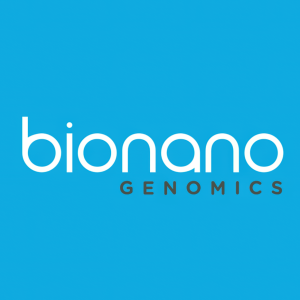Bionano Announces Use of OGM in Preimplantation Genetic Testing as Part of Successful Live Birth to a Couple Experiencing Recurrent Pregnancy Loss
Rhea-AI Summary
Bionano Genomics (BNGO) announced a breakthrough case study from Shenzhen Maternity and Child Healthcare Hospital, demonstrating the successful application of their optical genome mapping (OGM) technology in preimplantation genetic testing. The study showcases how OGM identified complex chromosomal rearrangements (CCRs) that were missed by traditional cytogenetic methods in a male partner of a couple experiencing recurrent pregnancy loss (RPL).
Using OGM as part of an in-vitro fertilization (IVF) and preimplantation genetic testing protocol, doctors were able to select the most viable embryo, resulting in a successful pregnancy and the birth of a healthy baby. This achievement is particularly significant as RPL affects millions worldwide, and infertility impacts 1 in 6 couples.
Positive
- OGM technology demonstrated superior detection capabilities compared to traditional cytogenetic methods
- Successful clinical application validates OGM's effectiveness in reproductive medicine
- Addresses large market opportunity with RPL affecting millions and infertility affecting 1 in 6 couples
Negative
- None.
News Market Reaction
On the day this news was published, BNGO declined 7.94%, reflecting a notable negative market reaction.
Data tracked by StockTitan Argus on the day of publication.
- OGM uniquely identified a complex chromosomal rearrangement missed by classical cytogenetics, helping clinical researchers apply targeted screening to select the most fit embryos for transfer
- Following in-vitro fertilization, preimplantation genetic testing and selection of fit embryos, a healthy baby was born to a couple that had previously experienced years of recurrent pregnancy loss
SAN DIEGO, Jan. 14, 2025 (GLOBE NEWSWIRE) -- Bionano Genomics, Inc. (Nasdaq: BNGO) today announced publication of a case study from the Shenzhen Maternity and Child Healthcare Hospital, China, demonstrating the application of optical genome mapping (OGM) in a protocol for preimplantation genetic testing for structural rearrangements (PGT-SR). In-vitro fertilization (IVF) and the PGT-SR protocol, which included OGM, led to selection of the presumed most viable embryos, resulting in a viable pregnancy and the birth of a healthy baby to a couple experiencing years of recurrent pregnancy loss (RPL).
The couple had experienced years of RPL due, presumably, to complex chromosomal rearrangements (CCRs) identified in the male partner. OGM revealed previously undetected CCRs in the male that traditional cytogenetic methods had missed. The OGM findings helped to inform embryo selection to identify and transfer the presumed most viable embryo, which resulted in pregnancy. Prenatal testing during the pregnancy confirmed a normal karyotype, and the pregnancy went to full term and live birth with the couple welcoming a healthy baby.
Erik Holmlin, president and chief executive officer of Bionano commented, “This case study suggests that OGM could play a role in helping people experiencing infertility or RPL achieve their dreams of parenthood. RPL affects millions of people worldwide and infertility affects 1 in 6 couples, so this research could be a significant breakthrough. We couldn’t be prouder to have OGM be a part of this successful pregnancy and healthy live birth.”
The full research publication is available at: A healthy live birth after preimplantation genetic testing for structural rearrangements and Bionano revealed exceptionally complex chromosome rearrangements.
About Bionano
Bionano is a provider of genome analysis solutions that can enable researchers and clinicians to reveal answers to challenging questions in biology and medicine. The Company’s mission is to transform the way the world sees the genome through optical genome mapping (OGM) solutions, diagnostic services and software. The Company offers OGM solutions for applications across basic, translational and clinical research. The Company also offers an industry-leading, platform-agnostic genome analysis software solution, and nucleic acid extraction and purification solutions using proprietary isotachophoresis (ITP) technology. Through its Lineagen, Inc. d/b/a Bionano Laboratories business, the Company also offers OGM-based diagnostic testing services.
For more information, visit www.bionano.com or www.bionanolaboratories.com.
Bionano’s products are for research use only and not for use in diagnostic procedures.
Forward-Looking Statements of Bionano Genomics
This press release contains forward-looking statements within the meaning of the Private Securities Litigation Reform Act of 1995. Words such as “could,” “suggest,” and similar expressions (as well as other words or expressions referencing future events, conditions or circumstances) convey uncertainty of future events or outcomes and are intended to identify these forward-looking statements. Forward-looking statements include statements regarding our intentions, beliefs, projections, outlook, analyses or current expectations concerning, among other things, OGM’s ability to detect CCRs missed by classical cytogenetics; the ability and utility of OGM to be used in applications such as PGT-SR; the ability and utility of OGM data to be useful for the selection of viable embryos; and other statements that are not historical facts. Each of these forward-looking statements involves risks and uncertainties. Actual results or developments may differ materially from those projected or implied in these forward-looking statements. Factors that may cause such a difference include the risks and uncertainties associated with: global and macroeconomic events, such as recent and potential bank failures, supply chain disruptions, global pandemics, inflation, and the ongoing conflicts between Ukraine and Russian and Israel and Hamas, on our business and the global economy; general market conditions; changes in the competitive landscape and the introduction of competitive technologies or improvements to existing technologies; the failure of OGM to detect CCRs missed by classical cytogenetics; the failure or inability of OGM to be useful in applications such as PGT-SR; the failure of inability of OGM data to be useful for the selection of viable embryos; the failure of OGM to be useful for the applications described in the publication referenced in this press release; future publications that contradict the findings of the publication referenced in this press release; changes in our strategic and commercial plans; our ability to obtain sufficient financing to fund our strategic plans and commercialization efforts; our ability to effectively manage our uses of cash, and our ability to continue as a “going concern”; the ability of medical and research institutions to obtain funding to support adoption or continued use of our technologies; and the risks and uncertainties associated with our business and financial condition in general, including the risks and uncertainties described in our filings with the Securities and Exchange Commission, including, without limitation, our Annual Report on Form 10-K for the year ended December 31, 2023 and in other filings subsequently made by us with the Securities and Exchange Commission. All forward-looking statements contained in this press release speak only as of the date on which they were made and are based on management’s assumptions and estimates as of such date. We do not undertake any obligation to publicly update any forward-looking statements, whether as a result of the receipt of new information, the occurrence of future events or otherwise.
CONTACTS
Company Contact:
Erik Holmlin, CEO
Bionano Genomics, Inc.
+1 (858) 888-7610
eholmlin@bionano.com
Investor Relations:
David Holmes
Gilmartin Group
+1 (858) 888-7625
IR@bionano.com








